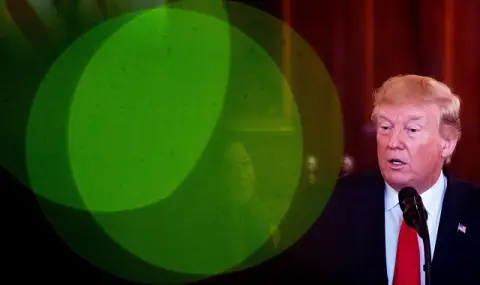Donald Trump has imposed tariffs on almost the entire world, including penguins and seals that inhabit uninhabited islands. However, Russia and Belarus are not on the tariff list. Why?
The US has imposed "reciprocal tariffs" on imports from over 180 countries and territories, but it's striking that some countries are missing from Donald Trump's list. For example, Russia.
US Treasury Secretary Scott Besant explained this decision by the fact that due to the sanctions, there is practically no trade with Russia. A similar argument was also made by White House Press Secretary Caroline Leavitt - in her words, the sanctions "prevent significant trade" between the two countries. But is this really the case?
The United States imports more from Russia than from Ukraine and Kazakhstan
Besent's claim about the lack of trade is at odds with reality. According to official data, in 2024, the volume of imports and exports between the two countries reached $3.5 billion, with the United States purchasing goods from the Russian Federation worth $3 billion. The largest share of US imports from Russia is occupied by fertilizers, non-ferrous metals and inorganic chemicals.
Is $3.5 billion a lot or a little? Before Russia's full-scale invasion of Ukraine, this amount was exactly 10 times higher - $35 billion. However, the thesis about Russia's absence from the list due to the insignificant share of US trade with it still seems doubtful.
For example, 27% tariffs have been imposed on Kazakhstan, and this country's trade with the US is equal to the value of trade with Russia - $3.4 billion, of which $2.3 billion are imports to the US. With Ukraine, the US has even more sluggish trade ($2.9 billion, of which $1.2 billion are US imports), but it is also on the list with 10% tariffs.
There are no tariffs on goods from Belarus, but there are tariffs on uninhabited islands
Political scientist Alexandra Filipenko notes to DW that Trump's list includes, for example, Venezuela, which is also under US sanctions. At the same time, the tariffs do not affect several other countries that are under US restrictive measures - North Korea, Cuba and Belarus. "This looks like a symbolic indulgence", says Filipenko.
According to UN estimates, US trade with Belarus does not exceed several tens of millions of dollars per year. And in 2024, the United States imported Belarusian goods worth $21 million.
The share of one or another country in imports and exports was clearly not a decisive factor in compiling Trump's list. This is evidenced, for example, by the appearance on the list of even uninhabited islands such as Heard and McDonald Islands and other small territories with which the US has zero or almost zero trade turnover.
Why did Trump's tariffs not affect Russia?
Alexandra Filipenko believes that the decision not to include Russia on the list shows that Trump prioritizes building relations with Moscow. This is also indicated by the reaction of the special envoy of the Russian President, Kirill Dmitriev, who wrote on Telegram that the restoration of dialogue between Russia and the US is a "difficult and gradual process", and "the countries are ready to build cooperation - both in international relations and in the economy".
Nina Khrushcheva, a professor of international relations in the US and great-granddaughter of Nikita Khrushchev, also suspects that Russia's absence from the tariff list is due to diplomatic contacts between the two countries. "I think that in political terms they will put pressure on Russia anyway, but during Dmitriev's visit to the US, the tariffs are counterproductive", Khrushcheva told DW. Subsequently, the Trump administration could impose tariffs on goods from Russia if it wanted to, she added.
"Russia and Ukraine are now in a separate cluster, decisions about which are made beyond economic logic," Oleg Buklemishev, director of the Center for Economic Policy Research at the Faculty of Economics of Moscow State University, told DW. He agrees that the lack of additional tariffs on Russia is a purely political issue, despite assurances from US authorities that the decision was due to the insignificant trade turnover between the US and Russia.
Deliveries of nuclear fuel, fertilizers and platinum groups continue, the expert also notes, but specifies that their volumes are far from the previous level and are not comparable to the European and Chinese markets. In general, Buklemishev is skeptical about the possibility of restoring trade turnover: "Even if relations warm up, it is impossible to return to previous levels of trade. "Financial, logistical and sanction restrictions will remain, and the Russian market has already been partially replaced by the Chinese one," the expert notes.
